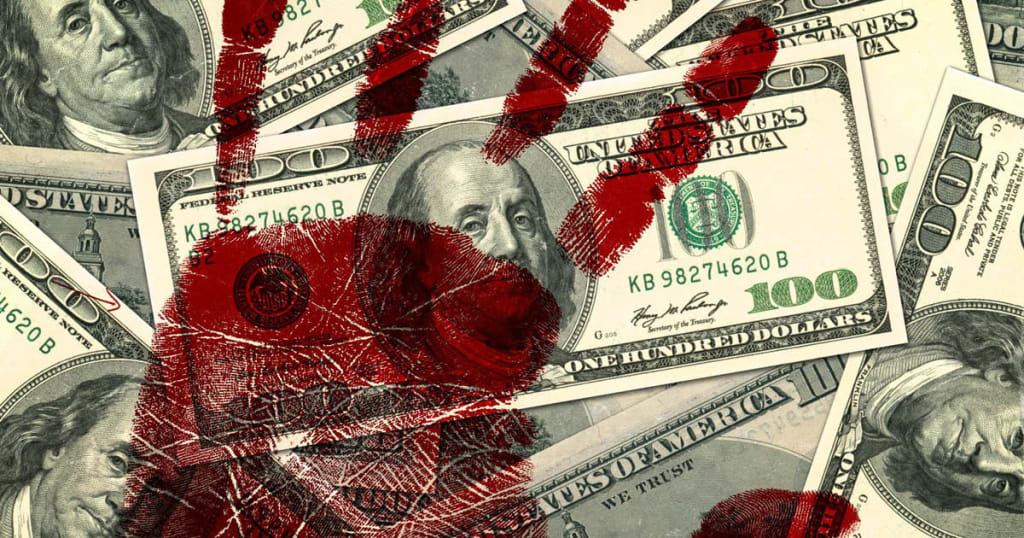
As Alan Corbett through the contract in detail, my eyes kept straying to the large, sealed manila envelope with my name hastily hand-scrawled on it. I barely absorbed anything Corbett was saying until I was finally asked to sign my name in full on the last page. My hand hovered over the line. I tried to think of my single mother who had worked three jobs to make ends meet and send me to school. She deserved this, didn’t she? Still, my eyes strayed back to the envelope. I would always wonder, guiltily, which it was that finally guided my hand into the familiar looping signature.
“Marvelous!” Corbett said, snatching up the papers and tucking them under an arm. “I’ll have these signed by the board and you’ll be set up with HR by next week. Congratulations, Sammy. Aleksander made a compelling argument for you to the board, you know. He called you a good man, said you would do great things for the company. That girls school in Nigeria, ah, what an idea! Aleksander really wanted to go out there. See it for himself, the great things his company does for people. But he was so tired by the end. Quite sick, actually, for a while. What a pity. He was so young.”
As soon as Corbett closed the door behind him, I pulled the manila envelope towards me. It was unexpectedly heavy, though whatever was inside of it was smooth and not particularly large. My palms, inexplicably, began to sweat. I slowly turned over the envelope and broke the seal. Inside was a small black spiral-bound notebook. The appearance was nondescript, and the cover was made of sturdy cardboard, not leather or plastic. I turned it over, surprised by the heft of it. There was no barcode or manufacturing information on the backside nor in the front cover. A folded-up piece of paper slid out when I opened it. It was a hand-written letter addressed to me in the same messy script as on the envelope. It read:
Dear Samuel,
Thank you for accepting the position as my successor. I realize that it has probably come as a rather sudden turn of events, and if you are receiving this letter, it means that I have died before being able to appoint you myself. I apologize for any inconvenience I will have caused, and hope that the substantial financial benefits will help to ease any future discomforts. You are most certainly wondering why I chose you, given that you are outside the line of direct succession. It is because I know deep in my heart that you are a good man. And good men, especially in this line of work, are difficult to come by. I know that you have had to dirty your hands in my name, yet still you managed to build something good in spite of it. And that, I hope, will be enough.
I always thought of myself as being a good man. I came to America with nothing, looking only to make a name for myself. I was ambitious, if perhaps a little naïve. Problems were just steppingstones to progress. It was not until far later that I realized the true consequences of my decisions. It was too late for me, and I have paid the price. But I hope that you will be the one to transform this company into a power for good. I leave this book in your hands and in the hopes that you will find a way to change fate where I could not.
All the best,
Aleksander Badenhorst
I set the letter aside, feeling no more enlightened than I’d been prior to reading it, and palmed through a few pages of the notebook. They were covered in short lists made up of dates, locations, and names scrawled in a neat handwriting that appeared vaguely familiar.
1972, Kentucky - Workplace accident
Laurance O’Hare
Jacob Milligan
1978, Mexico - Lead poisoning
Jesus Rodriguez
Samuel Batista
Anna de la Cruz
Sonja Hernandez
And on it went, list after list, page after page, until it filled half the book. Many of them I recognized, especially the more recent entries, but many more I did not. The final entry was dated as of last week and that’s when I finally recognized the handwriting, which I had, until now, only seen as the near-illegible scrawl of a man nearing his end. Aleksander Badenhorst. The cause of death was not listed. I closed the book and mulled this over in my head. Why would Badenhorst keep a journal of the human casualties of his company? Guilt? Resentment? How had he known his own date of death?
The official story was that it had been a heart attack. Yet the funeral had been closed casket, and there were whispers among the press that something more unsavory had taken place. Suicide, perhaps, or murder. It wasn’t like Mr. Badenhorst didn’t have enemies, of course. You don’t go into petrochemicals without miffing a few human rights and environmental groups. But that was what people like me were for. Carefully repackaging chemical spills as tragic anomalies, ensuring enough schools and boreholes were built to appease the local communities, redirecting the hungry, gnashing teeth of the press onto the local country’s lax safety standards and poorly enforced environmental regulations. I didn’t always sleep well at night, but someone had to do it, and if not me it would just be some other guy. At least I could make sure the infrastructure projects and compensation packages were legitimate. But I wasn’t just some PR executive any more. I placed the notebook in the desk drawer and locked it, and it wasn’t until I stood to leave that I noticed the black ink stains on my fingers.
I awoke on Monday morning oddly tired. I should have been nervous, or excited. But perhaps last week’s turn of events had exhausted me more than I’d realized. I put extra care into my grooming routine and took a taxi to the office instead of the subway, not wanting to attend my first board meeting smelling of urine and cigarettes. As I stepped into the building, people stopped to stare. Some even greeted me by name, almost reverently. I shuffled past them to the elevator.
My new office offered a 180-degree view of the city below. I could see my apartment, a pinprick of faded ochre in the Industrial west-end. I settled into the high-backed leather chair and my hand moved instinctively to the key in my pocket. I pulled it out and, after a moment’s hesitation, unlocked the desk drawer. The notebook felt heavier than I remembered as I pulled it out and began to flip idly through. I was almost certain the entries were all legitimate. I wasn’t – hadn’t been – the only PR executive. But then I stopped. There was a new entry, written in the loose cursive script I recognized as wholly my own. Another list. A date. A place. Five names. Chemical spill. Yet that was impossible - I had no memory of writing it.
I booted up my laptop – which had been brought up from my office along with my other personal effects – and dug into the weekend’s reports. I found one that matched the date, citing the same number of casualties following a corrosive chemical spill in a New Jersey factory. At first I was confused, then angry. I thought it was some sort of juvenile prank. But I held the only key to that drawer, and there were no signs of forced entry. I tucked the book back into the drawer and tried to ignore it as I went through training and paperwork and board meeting after board meeting. At some point I noticed fresh ink stains on my fingers. I went to the restroom and tried to scrub them out, but all I managed to do was reduce the marks to a dull gray. I tossed out all my waterproof fountain pens and ordered water-soluble ones to replace them.
It didn’t matter though. Every day I would rifle through the little black notebook and there would be a new entry. Date. Place. Names. Workplace accident. Pipeline explosion. Methyl isocyanate gas leak. Each day the book weighed a little more. Each day I would find new stains on my hands that I would scrub at until the skin broke and bled and all I could do to hide them was wear gloves everywhere. I struggled to get out of bed in the mornings. I lost all sexual urges. My hair started turning gray. I was so damn tired all the time. Weeks passed like this before I finally understood.
That bastard Badenhorst had made a mess of things and expected me to clean it up. He’d paid the price, and sooner or later, so would I. Blood for blood. Justice for injustice. Change doesn’t happen overnight after all, no matter how good your intentions. There was a knock at my door, and a young man stepped in.
“Sir, the meeting will begin in five minutes.”
I closed the book and slid it into the interior pocket of my suit. Had Mr. Badenhorst done the same, carried this notebook around with him everywhere even as it devoured him from the inside? It weighed heavily against my chest, yet I couldn’t make myself remove it. I stood and followed the secretary to the board room, where a dozen middle-aged men and one woman sat around a large table. They quieted as I entered, their gazes calculating and expectant.
“Good morning everyone,” I said as I took my seat. “I believe we have a lot of work to do, so let’s get started.”
About the Creator
Juliana Masseloux
I am a wildlife biologist, writer, artist, and science communicator. My interests are cats, community-based conservation, anti-racism, and dismantling corporate capitalism.






Comments
There are no comments for this story
Be the first to respond and start the conversation.